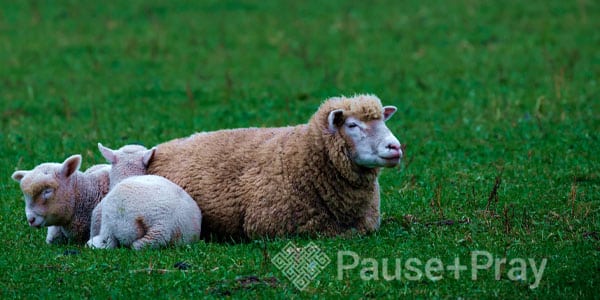READ
LK 6:17, 20-26
Jesus came down with the twelve
and stood on a stretch of level ground
with a great crowd of his disciples
and a large number of the people
from all Judea and Jerusalem
and the coastal region of Tyre and Sidon.
And raising his eyes toward his disciples he said:
“Blessed are you who are poor,
for the kingdom of God is yours.
Blessed are you who are now hungry,
for you will be satisfied.
Blessed are you who are now weeping,
for you will laugh.
Blessed are you when people hate you,
UNDERSTAND
by Father Greg Friedman, OFM
Over the years I’ve had occasion to meet men and women who are single-minded in their pursuit of justice, and their dedication to helping those on the margins of society. One thing most of these folks have in common is their ability to get right to the point.
That’s the feeling I get from the Gospel for this Sunday. We’re all familiar with Matthew’s presentation of Jesus’ “Sermon on the Mount.” Today, Luke offers us a sermon of Jesus as well. But the setting isn’t a mountainside. Rather, the Lord stands on a stretch of level ground.
And Luke’s version of Christ’s “Beatitudes” is also different from Matthew’s. They’re shorter, more direct, and focus more on the physical reality of poverty. In Matthew, Jesus speaks of the “poor in spirit”; in Luke, he says, “Blessed are you who are poor.” And the blessings are quickly followed by a list of woes for those who are rich and satisfied.
Luke’s Gospel overall is known for a focus on the poor. The fact of enduring poverty or other troubles seems to offer a perspective on God which helps us realize that we need to depend on God for everything. That’s a challenging message, one that we nevertheless need to hear. And we can thank Luke for capturing that part of what Jesus came to proclaim.
CLICK HERE TO LISTEN TO AUDIO.
DISCUSS
by Father Dan Kroger, OFM
- In the first reading, Jeremiah makes a contrast between someone who trusts in humans and someone who trusts in the Lord. How does Jeremiah describe someone who trusts in humans? What is that person like? How does Jeremiah describe someone who trusts in the Lord?
- The second reading is about the resurrection of the dead. Paul observes that some of the Corinthians are saying that there is no resurrection from the dead. But if there is no resurrection from the dead, then Christ is not raised from the dead. Then what? If there is no resurrection from the dead that means we believers are the most pitiable of all people. Why?
- In this week’s Gospel from Luke there are quite a few things different from the “Sermon on the Mount” found in the Gospel of Matthew (Mt 5:1-12). Where does Jesus preach in Matthew? Where does he preach in Luke’s Gospel? How many beatitudes are in Matthew’s account of the sermon versus Luke’s?Luke adds what are called “woes.” For example, “Woe to you who are rich.” How many woes are found in this reading from Luke?Does Luke’s story seem to indicate that God has a special love for the rich or the poor?
ACT
by Susan Hines-Brigger
- Have everyone in your family choose one of the Eight Beatitudes and make a list of all the ways you can live out its message. Share the lists with each other.
- Choose some of the suggestions you wrote down and try to do as many as you can this week. For instance, if you chose the beatitude that says, “Blessed are you who are now weeping, for you will laugh,” perhaps you could send them a funny cartoon or joke. Ask your family to brainstorm ways all of you can put the beatitudes into action together.








